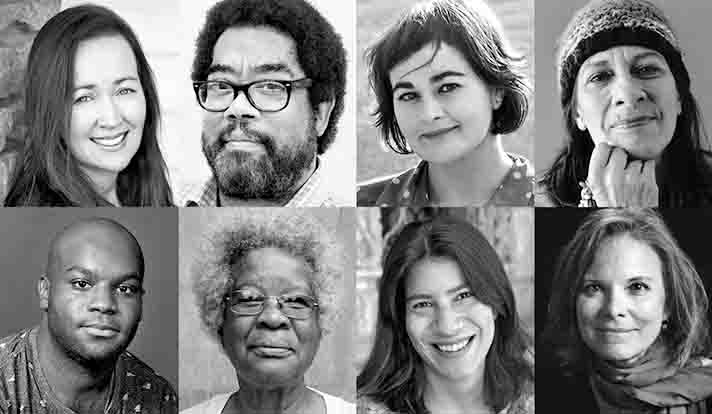
Eight writers were each awarded $165,000 as the recipients of the fifth annual Windham-Campbell Literary Award yesterday afternoon.
Every year, 120 works of literature are nominated for the prize, of which eight were chosen as this year’s winners. With no limitations or conditions attached to the monetary prize, the winners will all come to Yale for a three-day festival beginning Sept. 13. According to the program’s website, the purpose of the prize is to allow writers to focus on their work without financial constraints.
“I am excited for this year’s festival because we tailor the events to the writers to create the most impact across the campus and to the public,” said Michael Kelleher, director of the Windham-Campbell Award.
This year’s winners in the fiction category are André Alexis and Erna Brodber, the latter of whom is the first winner from Jamaica. In the drama category, the winners are Marina Carr and Ike Holter, while Carolyn Forché and Ali Eckermann received the award for poetry. In the final category — nonfiction — the prizes were given to Ashleigh Young and Maya Jasanoff, the latter of whom is currently the Coolidge Professor of History at Harvard.
The Windham-Campbell prize is hosted by the Beinecke Rare Book & Manuscript Library and was founded through a donation by Donald Windham and Sandy Campbell. The award expanded this year to include poetry, bringing the total number of genres from three to four. Kelleher said he thinks the current genres cover a wide enough range and no more will be added in the foreseeable future.
He also highlighted the diverse group of recipients this year. He noted that the youngest writer, Young, is in her early 30s while the oldest, Brodber, is in her 70s. Young writers deserve just as much acclaim, he said, because the purpose of the award is to reward writers in all stages of their careers. He added that Brodber has never before received major international recognition in her four-decadelong career.
“I think that this is an instance where we see extraordinary promise, and we want to further encourage it,” Kelleher said. “There are writers that we believe deserve a wide international audience and we can help to provide that.”
In a statement, Holter said the monetary award will give the recipients financial stability so that they will be able to focus more on writing. Similarly, Forsche said that the prize validates her literary work, not only for herself, but the world as well.
Still, the writers’ recognition does not stop at the monetary prize, as the festival also features various discussions and readings of the literature.
“[The festival] is a three-day event where the writers come to Yale and host panels, head of college teas, readings and whatever we think will have the most influence,” Kelleher said. “We try to make the events both student friendly and open to the public.”
The selection process begins when anonymous figures prominent in the literary world recommend authors to the prize’s judges. Kelleher and the judges then go through and read the 120 nominated works. In a twist unique to the Windham-Campbell Award, the selection process is kept entirely secret from the writers, who do not know they were nominated until they win.
Some of the artists said they still cannot believe that they have received the award.
“The telephone call and later the representation on paper of a miracle was so frighteningly surreal, I am still wondering if I have been trapped in a composition of mine,” Brodber said.
At this year’s festival, the keynote speaker will be Karl Knausgård, a prominent Norwegian author, who will address the question of “Why Do I Write?”







